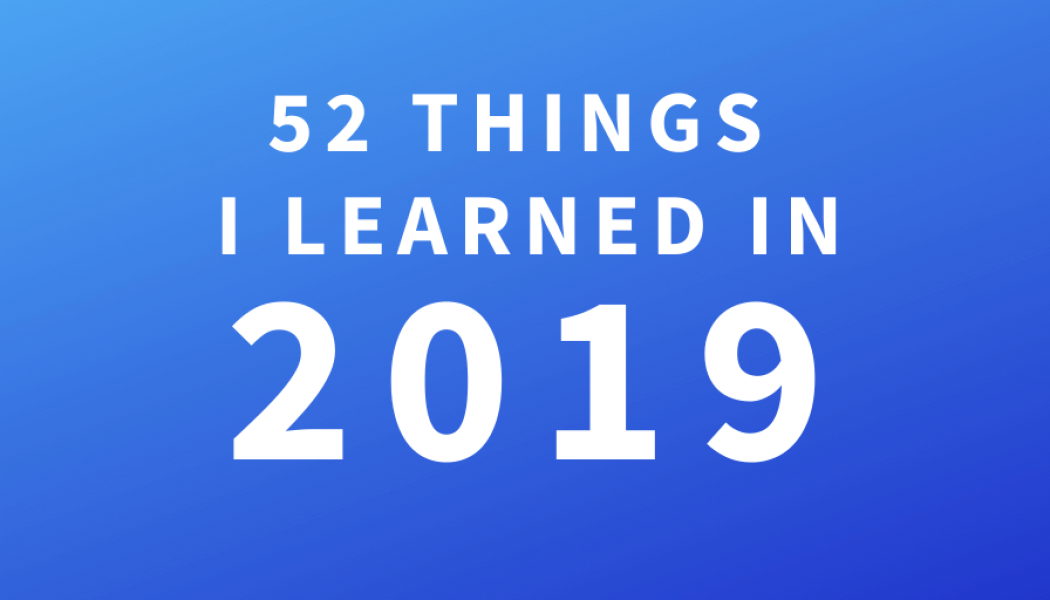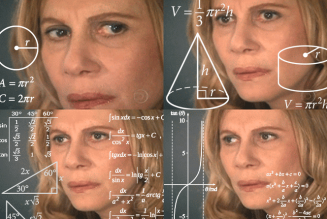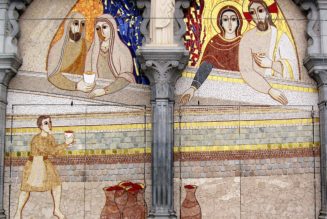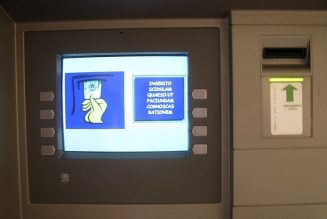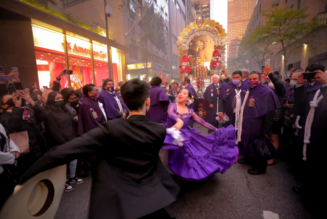
Here are some of the most interesting things I learned this year:
- Having a younger brother reduces your earnings by 7% on average. (“The brother earnings penalty”)
- Amazon loses 1% in revenue for every extra tenth of a second customers spend waiting for pages to load on their website. (“Wait, wait, tell me”)
- There is still an iron curtain between Europe’s two major mouse species, the so-called “Squeaky Curtain.” Today, they interbreed only in a narrow zone 10 to 20 km wide near the border between Germany and the Czech Republic. (“‘Squeaky Curtain’ divides Europe’s Eastern and Western mice”)
- People who pray for hurricane victims donate less toward their recovery. When people were given the option of donating between $0 and $5, those who prayed gave $1 less on average. (“Thoughts and Prayers”)
- People whose names include an infix—e.g. David van Mitchell instead of David Mitchell—were ranked 43.8% higher in perceived social status than those without. (“The Impact of Middle Names”)
- Only 1% of friendships that start in 7th grade last even five years. (“Study shows most teenage friendships doomed to fail”)
- Taking lots of photos makes you less likely to remember the event. (“If you really want to remember a moment, try not to take a photo”)
- For the first time since 1960, yellow lights will likely be getting longer, extending from 3.2 seconds to 4.5 seconds, thanks to new research on driving behavior and the persistence of an electrical engineer from Sweden. (“Traffic lights worldwide set to change after Swedish engineer saw red over getting a ticket”)
- Redheads have a 25% higher pain threshold than non-redheads. (“Redheads have rare genetic traits”)
- Calvin from Calvin and Hobbes caused an estimated $15,955.50 in property damage, ranging from breaking a glass jar ($2.00) to flooding an entire house ($4,798.83). Damage wasn’t evenly distributed throughout the 10-year period of publication: 56.4% of the damaged occurred during the first year, and 72% of all damage occurred during the months of January, February, and August. (“How much damage can a 6 year old possibly do?”)
- Kim Jong Il, the second leader of North Korea, insisted on eating only rice that was picked by hand. All grains had to be exactly the same size. (The Great Successor)
- People born between 1963 and 1965 were 0.2% to 0.5% less likely to drive to work in the year 2000 than people born immediately before and after these years. This is because this cohort’s first experience with driving came during the price shocks of the 1979 oil crisis. The commuting habits developed during these formative years have lingered decades later. (“Formative Experiences and the Price of Gasoline”)
- 29% of public transit commuters in the United States live in New York City. (Triumph of the City)
- When minimum wage goes up, mediocre restaurants close. A $1 increase in minimum wage makes it 10 percent more likely a restaurant with 3.5 stars on Yelp will close, but it has no impact a restaurant with a 5-star rating. (“Survival of the Fittest”)
- Native Americans are more closely related to the French than they are to people from East Asia. Both Native Americans and the French can trace their ancestry to a now-extinct population from northern Eurasia. Some of their descendants migrated east across the Bering Land Bridge; others migrated west to northern Europe. Those who remained were replaced by other populations. (Who We Are and How We Got Here)
- 17% of men in the United States between the ages of twenty and forty who are seven feet tall are in the NBA right now. (The Sports Gene)
- People who live in cities benefit from economies of scale. When a city’s population doubles in size, productivity goes up 15% (“A Unified Theory of Urban Living”). When the number of jobs in a city goes up 10%, average productivity goes up 2.4% across all jobs (Order without Design). When the number of college graduates in a city goes up 10%, everyone’s earnings go up 7.7%—even for non-college graduates. (Triumph of the City). Financial returns for crimes committed in cities are 20% higher compared to the same crimes committed outside cities (“Why is there more crime in cities?”).
- Sperm cells can’t turn left, so they swim in ever-expanding right-turning circles to get where they need to go. (Human Errors)
- Red wine isn’t good for you. To get the health benefits—a minimum of 500 mg of resveratrol—you would need to drink 1,300 glasses per day. You would die of alcohol poisoning long before the effects of resveratrol kick in. (“Resveratrol: How Much Wine Do You Have to Drink to Stay Healthy?”)
- People in mosh pits behave just like gas particles suspended in equilibrium. (“Collective motion of humans in mosh and circle pits at heavy metal concerts”)
- “Baby Shark” has its origins in the late 1970s as a riff on the Jaws theme. After three decades of change through oral transmission, the first recorded version appeared in January 2007 in Germany as “Kleiner Hai.” Since then, it has undergone a final evolution into the K-pop version produced by Pinkfong that went viral in June 2016. (“Baby Shark”)
- Productivity went up 25% among government typists in the 1950s thanks to the invention of air conditioning. (The Rise and Fall of American Growth)
- Patents are twice as likely to cite patents from the same metropolitan area compared to patents from everywhere else. One fifth of all patent citations are to patents from the same city, and a quarter to patents from the same state. (“Geographic Localization of Knowledge Spillovers as Evidenced by Patent Citations”)
- After the LSU football team loses a game, juvenile court judges in Louisiana hand out sentences that are 6.4% longer on average. Sentence length correlates with how far a judge lives from LSU, with the longest sentence lengths handed out by judges who live closest to LSU. (“Emotional Judges and Unlucky Juveniles”)
- The most efficient way to sort the stack of papers on your desk is in the order you receive it, with the most recent items at the top. If you follow this rule, then “the total amount of time you spend searching will never be more than twice as long as if you’d known the future.” This is because, averaged out, “the next thing we can expect to need is the last one we needed, while the thing we’ll need after that is probably the second-most-recent one. And the last thing we can expect to need is the one we’ve already gone longest without.” (Algorithms to Live By)
- There are five ZIP codes in Manhattan that have a bigger payroll than Oregon or Nevada. (Triumph of the City)
- Reusable organic cotton bags must be used 149 times to offset the effects of traditional plastic bags on climate change, and they must be used 20,000 times to offset all combined environmental effects. (“Life Cycle Assessment of Grocery Carrier Gags”)
- When a new grocery store opens in a food desert, healthy eating increases by only 1.5% in low-income households. Low-income households choose to spend the gains from time efficiencies and decreased travel costs on things other than healthy food. (“Food Deserts and the Causes of Nutritional Inequality”)
- 40% of the buildings in Manhattan could not be built under today’s zoning regulations. (New York Times)
- Keysmashes (like “asdljklgafdljk”) follow predictable patterns. They almost always begin with “a.” They often begin with “asdf.” Other common subsequent characters are g, h, j, k, l, and ;, but less often in that order, and often alternative or repeating within this second group. (Because Internet)
- The year after U.S. Civil War ended, the state of Mississippi used one-fifth of its revenues to buy artificial limbs for returning veterans. (The Civil War, vol. 3: Red River to Appomattox)
- Sit-down meetings are no more effective than stand-up meetings, but they last 34% longer on average. (“The effects of stand-up and sit-down meeting formats on meeting outcomes”)
- People from single-person households are 9% more likely to vote if you ask them where they’ll be coming from before they vote and where they’ll be going after. (Dan Bennett)
- Beginning in 2010, when mandatory minimum sentencing laws took effect, 3.6% of Black and Hispanic crack-cocaine offenders were charged with possessing 280 grams, compared to 1.2% of white offenders. The discrepancy can be almost entirely explained by “state-level racial animus based on Google search data.” (“Racial Disparities in Federal Sentencing”)
- The average human hug lasts 3 seconds. This holds true across all cultures. (“Sharing the moment: the duration of embraces in humans”)
- In 1886, a typical woman in North Carolina carried water between 8 and 10 times per day. She would have carried 36 tons of water per year. Indoor plumbing changed everything. (The Rise and Fall of American Growth)
- After the Fukushima nuclear accident in 2011, more people died from the effects of shutting off the power plant than from the accident itself. The loss of nuclear power generation increased demand for energy from fossil fuels, causing prices to rise. As a result, people turned down or turned off their heat during the coldest months. (“Be Cautious with the Precautionary Principle”)
- The number of police officers as a percentage of total population doubled between 1910 and 1930, thanks in part to the need to enforce the growing number of traffic violations. In 2014, the Ferguson, Missouri municipal court heard roughly 53,000 traffic cases, compared to 50,000 non-traffic cases. (Policing the Open Road)
- The optimal amount of free time per day to achieve maximum happiness is 2.5 hours for people who are employed. More than this and they get bored. Less, and they feel stressed and overworked. (“How Much Leisure Time Do the Happiest People Have?”)
- In 1940, the cost of a vacuum cleaner was equivalent to a week’s income for an average worker. (The Rise and Fall of American Growth)
- Tikka masala, the famous Indian dish, was probably invented in 1971 in Glasgow, Scotland. (Wikipedia)
- People rate a piece of writing 14.2% better when the author’s name includes a middle initial. (“The Impact of Middle Names”)
- In the late-nineteenth century, the 131,000 horses in New York City produced between 1,300 and 3,000 tons of manure per day—5 to 12 tons per square mile. The city was responsible for removing 15,000 horse carcasses from streets per year. (Horses at Work)
- When tasked with a cooperation game that offered monetary rewards, groups that met in person made more money than groups that met remotely. Groups that met remotely prioritized personal gains over group interests. (“Trust breaks down in electronic contexts but can be repaired by some initial face-to-face contact.”)
- Public smoking bans cause smokers to smoke an extra 2 to 4 cigarettes per day in the presence of their children. Instead of smoking in restaurants and bars, smokers smoke at home. (“The Effect of Bans and Taxes on Passive Smoking”)
- The 1,028 hymns of the Rig Veda were composed in northwestern India and Pakistan, but the deities first appeared in written form not in India but in northern Syria. (The Horse, the Wheel, and Language)
- Jevons paradox states that efficiency in a system leads to more, not less, consumption. It’s named after William Stanley Jevons, who, in 1865, proposed that as coal furnaces became more efficient, Britain would consume more coal, not less. (A modern analogue might be that as the internet gets faster, it becomes more bloated—which makes it slower in the long run.) (“The Efficiency Dilemma“)
- Gender reveal parties are a relatively recent phenomenon. The first one occurred in 2008 for (and by) Jenna Karvunidis. (“Gender Reveal Parties“)
- Hypnagogic jerks—the involuntary muscle twitches you experience right before you fall asleep—are possibly an evolutionary holdover that kept our primate ancestors from accidentally falling out of trees while sleeping. (“Why you jerk awake just as you’re about to fall asleep“)
- There are 15 buildings that are 984 feet tall, but no buildings that are 985 feet tall. That’s because 984 feet is the minimum height for a building to be classified as “supertall” by the Council on Tall Buildings and Urban Habitat. Even though it’s an arbitrary threshold, architects want to belong to the supertall club. (“More than half of the “supertall” skyscrapers to be completed in 2019 are in China“)
- Vehicle rationing—permitting cars with even-numbered license plate numbers to drive only on even-numbered days, and odd-numbered license plate numbers to drive only on odd-numbered days—actually causes air pollution to increase, not decrease. Households don’t change their driving habits. Instead, they buy a second vehicle, which is often more inefficient than the first. The net result across a metropolis is almost no change in miles driven, but a far higher percentage of miles driven with less efficient, higher-polluting vehicles. (“The Effect of Transport Policies on Car Use“)
- Almost nobody living in Europe 4,500 ago is an ancestor of modern Europeans. Previous populations were replaced by the Yamnaya people, who migrated westward from the Asian steppes. (Who We Are and How We Got Here)
This list was inspired by a similar list from Tom Whitwell, which I recommend you check out. See last year’s list: 52 things I learned in 2018
<!–
–>
